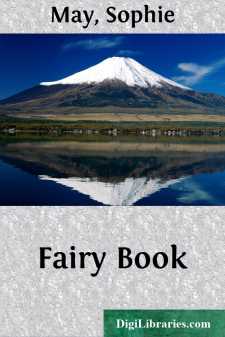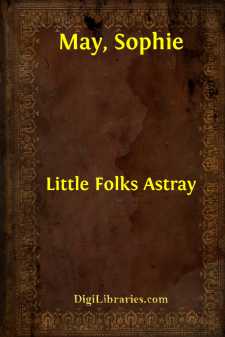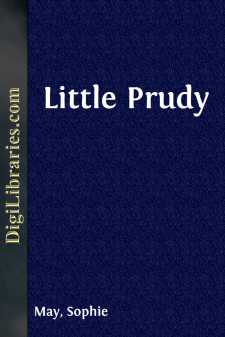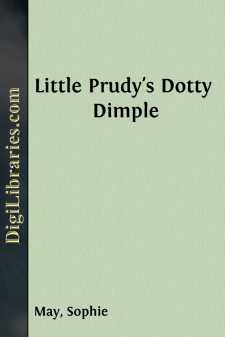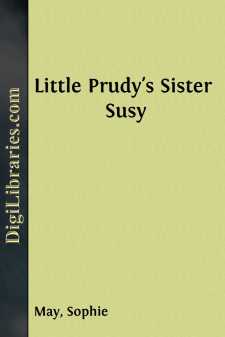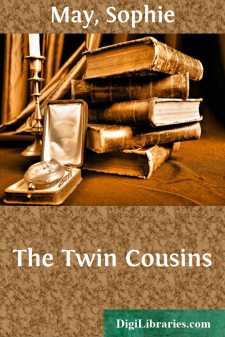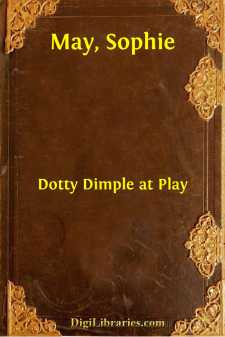Categories
- Antiques & Collectibles 13
- Architecture 36
- Art 48
- Bibles 22
- Biography & Autobiography 813
- Body, Mind & Spirit 142
- Business & Economics 28
- Children's Books 17
- Children's Fiction 14
- Computers 4
- Cooking 94
- Crafts & Hobbies 4
- Drama 346
- Education 46
- Family & Relationships 57
- Fiction 11829
- Games 19
- Gardening 17
- Health & Fitness 34
- History 1377
- House & Home 1
- Humor 147
- Juvenile Fiction 1873
- Juvenile Nonfiction 202
- Language Arts & Disciplines 88
- Law 16
- Literary Collections 686
- Literary Criticism 179
- Mathematics 13
- Medical 41
- Music 40
- Nature 179
- Non-Classifiable 1768
- Performing Arts 7
- Periodicals 1453
- Philosophy 64
- Photography 2
- Poetry 896
- Political Science 203
- Psychology 42
- Reference 154
- Religion 513
- Science 126
- Self-Help 84
- Social Science 81
- Sports & Recreation 34
- Study Aids 3
- Technology & Engineering 59
- Transportation 23
- Travel 463
- True Crime 29
Little Grandfather
by: Sophie May
Categories:
Description:
Excerpt
THE PARLINS.
He did look so funny when they first put him into "pocket-clothes!" His green "breeches" were so tight that they made you think of two pods of marrow-fat peas, only they were topped off with a pair of "rocco" shoes, as red as bell-peppers. He had silver buckles on his shoes, and brass buttons on his green jacket, which was fastened at the back. He had a white collar about his neck as large as a small cape, and finished off around the edge with a ruffle. His mother had snipped his dark locks so they needn't look so much like a girl's; and then with his brown fur hat on, which his grandfather Cheever had sent from Boston, he looked in the glass and smiled at himself.
Do you wonder he smiled?
He had bright black eyes, red cheeks, and a rich, dark skin. He was a handsome little creature; but when he was tanned, his brother Stephen called him a "Pawnee Indian," which was a heavy joke, and sank deeper into Willy's tender soul than Stephen suspected.
After he had viewed himself in the mirror, dressed in his new suit, he ran to his best comforter, his mother, and said, with a quivering lip,—
"Isn't I most white, mamma?"
His mother caught him to her breast and hugged him, brown fur hat and all, and told him he mustn't mind Steenie's jokes; he was not an Indian, and Molly Molasses—the squaw who came around with baskets to sell—would never carry him off.
He was three years old at this time, and so full of high spirits and health, that he was rather a troublesome child to manage. Mrs. Parlin sometimes remarked, with a sigh and a smile,—
"I don't know what I shall do with our Willy!"
If she had said, "I don't know what I should do without him," it would have been nearer the truth; for never did mother dote more on a child. He was the youngest, and two little children next older—a son and a daughter—had been called to their heavenly home before he was born. People said Mrs. Parlin was in a fair way to spoil Willy, and her husband was so afraid of it, that he felt it his duty to be very stern with the boy.
Seth, the oldest son, helped his father in this, and seemed to be constantly watching to see what Willy would do that was wrong.
Stephen, two years younger than Seth, was not so severe, and hardly ever scolded, but had a very "hectoring disposition," and loved dearly to tease his little brother.
Love, the only sister, and the eldest of the family, was almost as soothing and affectionate to Willy as Mrs. Parlin herself. She was tall, fair, and slender, like a lily, and you could hardly believe it possible that she would ever grow to be such a very large woman as her mother, or that Mrs. Parlin had once been thin and delicate, like Love.
There was another, besides these two, who petted Willy; and that was "Liddy," the housemaid. Lydia was a Quaker woman, and every "First Day" and "Fifth Day"—that is, Sunday and Thursday—she went off to a meeting, which was held over the river, three miles away, in a yellow "meeting-house" without any steeple. It was not always convenient to spare Lydia on "Fifth Day," for, Mr....



